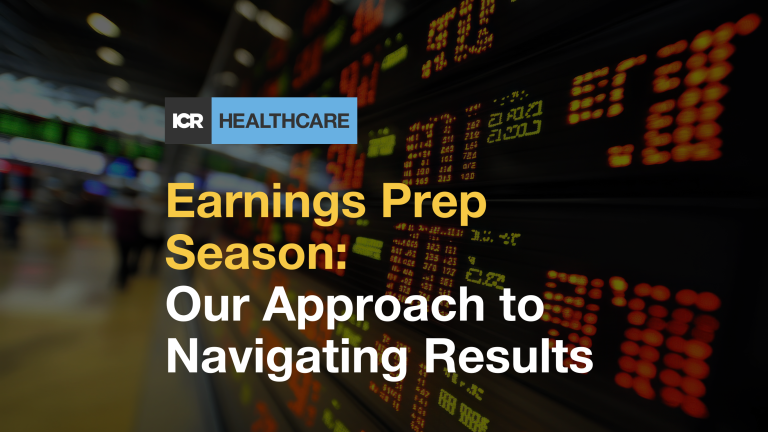Direct access to management remains the top priority for investors, but how companies provide this access is shifting. The methods for connecting with investors — whether through conferences, Non-Deal Roadshows (NDRs), or virtual meetings — must be carefully planned to maximize effectiveness. We took a look at how corporate access has changed in 2024 and what that means for strategy in 2025.
Conferences: A Continued Surge
Conferences have become the primary vehicle for corporate access, with participation increasing by 51% since 2019. For many companies, up to 80% of investor access now happens through conferences, underscoring their importance. To make the most of conferences, companies should:
- Plan Ahead: Work with the sell-side at least six months in advance to identify and secure spots at high-value conferences.
- Evaluate Investor Fit: Research which investors and peer companies are attending to gauge whether the conference aligns with your goals.
- Maximize Efficiency: Pair conference attendance with customer meetings or other business priorities to optimize your time.
- Be Selective: Focus on quality over quantity when choosing which conferences to attend.
Non-Deal Roadshows: Concentrated in Key Hubs
While non-deal roadshows remain an effective tool for one-on-one investor engagement, they’ve seen a 16% decline over the past four years. Regional trends reveal a concentration in financial hubs such as New York City, Boston, and San Francisco, with limited appetite for NDRs in the Midwest, Texas, or Southeast.
For companies considering NDRs:
- Prioritize regions where investor demand is strongest.
- Consider hosting NDRs in conjunction with conferences or other events or business meetings to make the trip more productive.
Virtual Meetings: Declining but Still Relevant
Virtual meetings have seen a sharp decline in popularity, dropping to 13% of corporate access activity in 2023 according to statistics at the 2024 Annual NIRI Conference, though some industry experts suggest this figure may be understated. Despite the decline, virtual meetings remain a valuable tool for maintaining investor relationships when in-person demand doesn’t justify travel. Companies should continue to offer virtual options as a flexible alternative, ensuring they stay in front of investors even when logistical challenges arise.
The Rise of Differentiated Investors: Retail and Non-Traditional Targets
For small and micro-cap companies, engaging institutional investors is becoming increasingly challenging, particularly for those with market caps below $500 million. As a result, retail investors and non-traditional institutions, such as family offices or thematic funds, are becoming critical targets.
Strategies to engage differentiated investors include:
- Leveraging digital platforms to connect with retail audiences.
- Participating in targeted events or virtual forums designed for non-traditional investors.
- Proactively reaching out to family offices and niche funds that align with your company’s story.
Strategic Planning: The Key to Corporate Access Success
The evolving corporate access landscape demands a more proactive and strategic approach. Companies should focus on these key areas:
- Plan Conferences and NDRs Early: Secure invitations at least six months in advance for conferences and roadshows. Waiting until 8-10 weeks before an event risks suboptimal participation or schedules.
- Evaluate Participation: After attending a conference or roadshow, assess its productivity. Did you meet the right investors? Did the schedule align with your goals? Use these insights to refine your strategy for future events. Conferences in particular are usually frequented by the same investors year after year.
- Avoid Last-Minute Changes: Backing out of conferences less than three weeks in advance damages relationships with the sell-side and reflects poorly on your planning — unless at the advice of the sponsoring broker.
Regional Trends and International Considerations
The geographic focus of corporate access is narrowing. Nearly 48% of all NDRs are now concentrated in New York City, up from 40% in 2019. Other key hubs include Boston, San Francisco, and select regions in Canada and Europe. However, some companies have noted challenges with West Coast NDRs, particularly in San Francisco, where remote and flexible work schedules among the buy-side community often lead to a mix of in-person and virtual meetings conducted from the broker’s office. For companies marketing internationally or on the West Coast, careful planning is critical. Host prep calls with investors to ensure alignment, and prioritize markets with strong, in-person demand for your company’s story.
Private Company Access: A Growing Focus
Private companies are increasingly engaging in corporate access, driven by rising demand from investors and expanded offerings from the sell-side. Many larger bulge bracket investment banks now have dedicated Private Company Access desks separate from their traditional Corporate Access teams or employ originators focused solely on private companies within Corporate Access. Investors in this space have traditionally been private equity and crossover funds, but there is growing interest from traditional institutional investors. Larger long-only funds and hedge funds, in particular, have developed teams dedicated to meeting with private companies — primarily late-stage — sometimes to gain insights or “read-through” data. Tech and consumer sectors lead the demand for private company access, followed closely by healthcare. With the 2024 elections concluded and markets responding positively to the results, there is renewed optimism around deal activity and economic growth. This has further amplified investor interest in private companies, and we expect the demand to increase going into 2025.
Looking Ahead: A Year of Strategic Engagement
As we move into 2025, the lessons from the past year are clear: corporate access requires thoughtful curation and an unwavering focus on quality. Whether through conferences, NDRs, or virtual meetings, companies must prioritize connecting with the right investors at the right time. By embracing a proactive, strategic approach, management teams can ensure their investor engagement efforts are both impactful and efficient — laying the foundation for long-term success in an increasingly competitive landscape.
If you’re interested in learning more about the ICR Investor Access program, get in touch.



